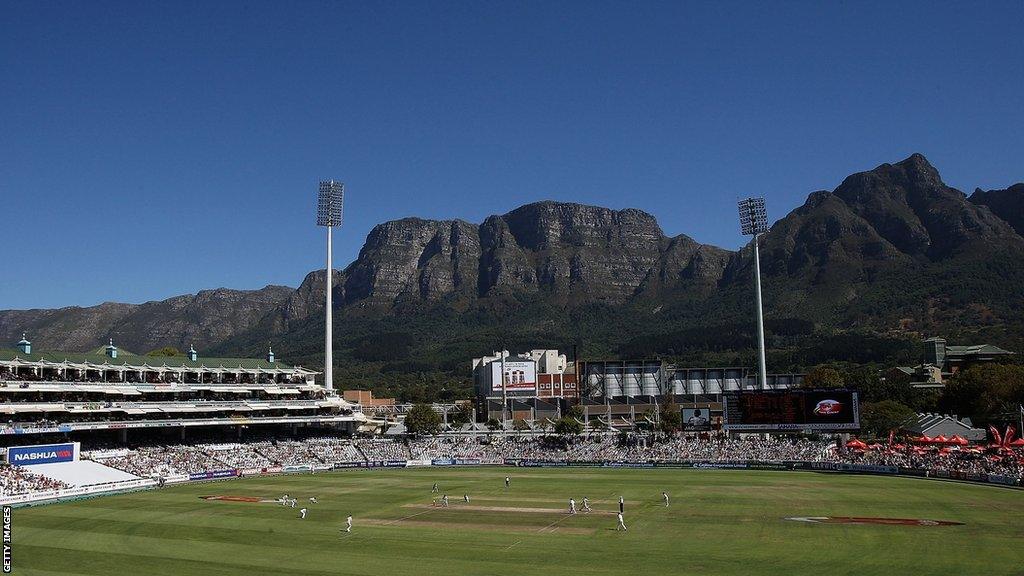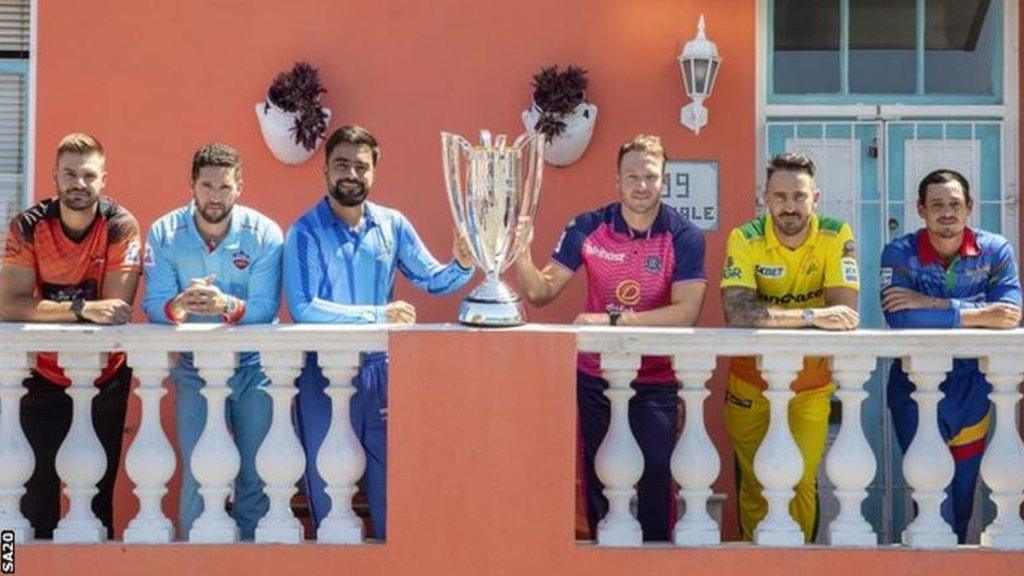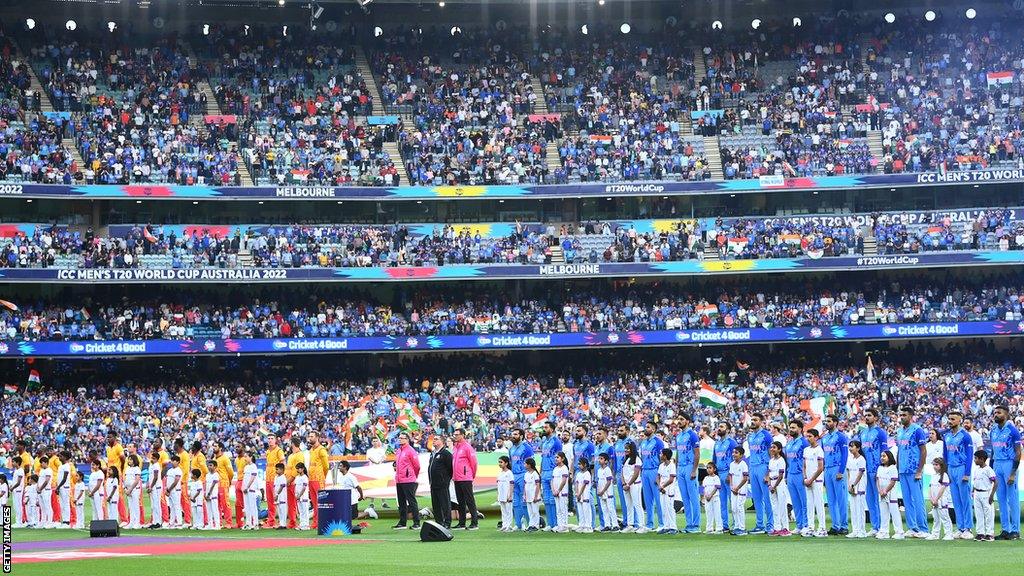African cricket wants to avoid Hundred 'rivalry' despite calendar clash
- Published

The African Premier League will initially be hosted in South Africa due to a lack of facilities across the continent
Organisers of Africa's new continental T20 franchise competition say they want to avoid a "rivalry" with The Hundred - despite potentially picking the same slot in cricket's crowded international calendar.
The African Premier League (APL), set to be played in August and September, is the latest T20 league looking to muscle in on the success of events like the Indian Premier League (IPL) and the Big Bash in Australia.
The inaugural tournament is set to launch next year in South Africa, hoping to attract the best global talent.
"There's big interest with regards to investors from overseas, even as far as America," Africa Cricket Association (ACA) chief executive Cassim Suliman told BBC Sport Africa.
"Everyone is looking at Africa and the first Africa Premier League."
The Hundred, which sees each side face 100 balls, is the brainchild of the England and Wales Cricket Board, and is the only competition of its type in the world. This year's schedule begins on 1 August with a final on 27 August.
But Suliman has insisted the two tournaments can co-exist even if they end up overlapping.
"The only open window we have is somewhere between August and September," he explained.
"Then you get more viewership. Broadcasting-wise, it will be quite an opportune time to have that launched.
"There is no such thing as rivalry. We have to stay clear and not clash with any other events and make sure everyone is happy."
How to take on the IPL?
Earlier this year, South African cricket launched its own T20 competition, SA20.
It means most major cricketing nations now have their own franchise-based event - a key reason why the sport's calendar is so busy.
Each one is playing catch up with the IPL, which dominates when it comes to exposure and revenue.
"You must take into consideration the other T20s like Pakistan, Sri Lanka and Bangladesh," Suliman explained.
"They started earlier and are also building to that level.
"We are right at the bottom end but the SA20 was brilliant. It was exciting, brought the crowds back and it has definitely left a very good legacy with the first year alone.
"It's starting blocks for us so our expectations are not that high. We take one step at a time and I'm sure eventually it will get further up the ladder," he added.

The inaugural SA20 was made up of six teams based in Tshwane, Johannesburg, Durban, Gqeberha, Cape Town and Paarl
Ahead of this year's SA20, tournament commissioner and former South Africa captain Graeme Smith told BBC Sport Africa of their plan to take games to neighbouring countries such as Zimbabwe and Angola.
Smith also said he'd be happy to sit down with the ACA to help with their plans for the APL.
"Graeme has a lot of experience and expertise and he's a good friend," Suliman said.
"It would be a good feather in our cap to have him involved in the APL."
Why August and September?
APL organisers settled on the August/September window after consultation with the International Cricket Council, the sport's governing body, and Cricket South Africa.
For Suliman, avoiding a clash with any of the Proteas' tours is key to ensuring South African international players are free to join the APL.
"We need to make sure we get the top players that can rub shoulders with African players who can learn and educate themselves from that experience - it will be absolutely brilliant.
"It'll be players from the UK, Pakistan, India, Bangladesh, Sri Lanka, of course South Africa and Zimbabwe, and the local players within the ACA.
Indeed, those local players have already been able to stake their cases thanks to last year's first ever Africa Cup - a T20 tournament for non-Test playing nations on the continent.
"We have already picked a best African squad of 22 from the last T20 (the Africa Cup), so they are the best players at the moment who will filter into these franchises," Suliman added.

Zimbabwe's appearance, alongside South Africa and Namibia, at the T20 World Cup in Australia in 2022 was their first appearance at a major international event in six years
Expanding across Africa
Although the first edition of the APL will be hosted only in South Africa, the ultimate aim is that it will be a truly pan-African event.
"There is a problem because infrastructure and facilities are hard to come by at the moment," Suliman revealed.
"There's no other country besides South Africa that can give you that type of facility.
The use of hybrid pitches - a mix of grass and synthetic surfaces - is helping to alleviate some of the time-consuming issues involved in laying and managing wickets, but the lack of suitable stadiums remains a problem.
"The other members are busy catching up and bringing up to speed facilities because there are no floodlights anywhere in Africa besides South Africa," Suliman said.
"Nigeria is building two ovals. Same with Ghana and Rwanda, but it will take time."